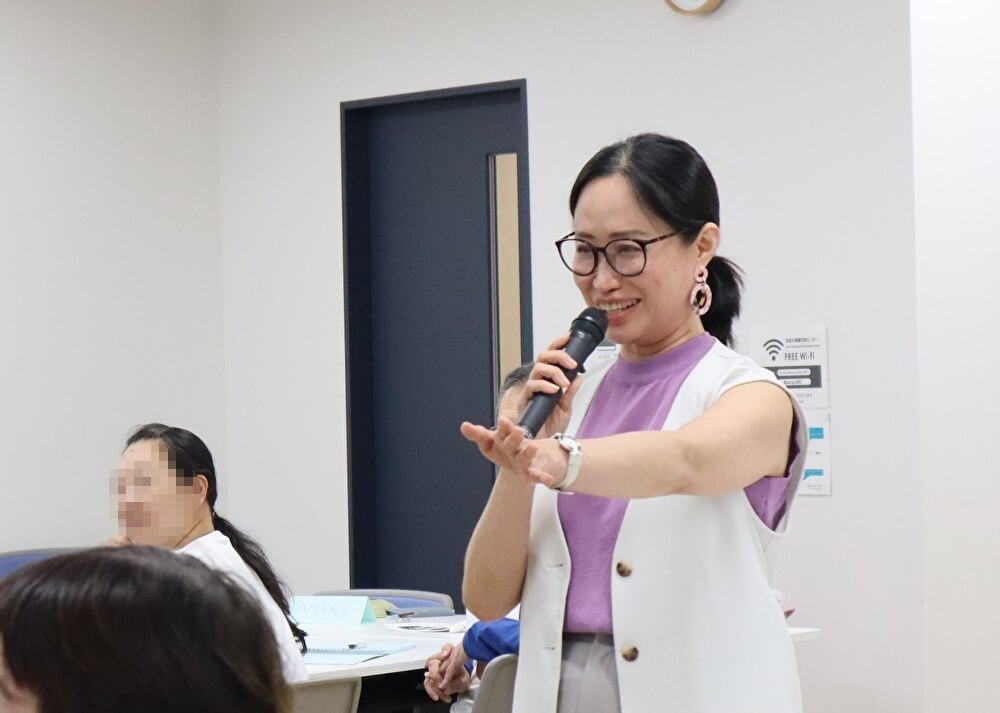
“Were you all surprised at the rain?”
Marisa talked with a loving look on her face to the students who rushed into the classroom in a sudden downpour.
She is a mother of 3 children and currently works as a volunteer teacher at GOCA’s English conversation course.
― What brought you to Japan?
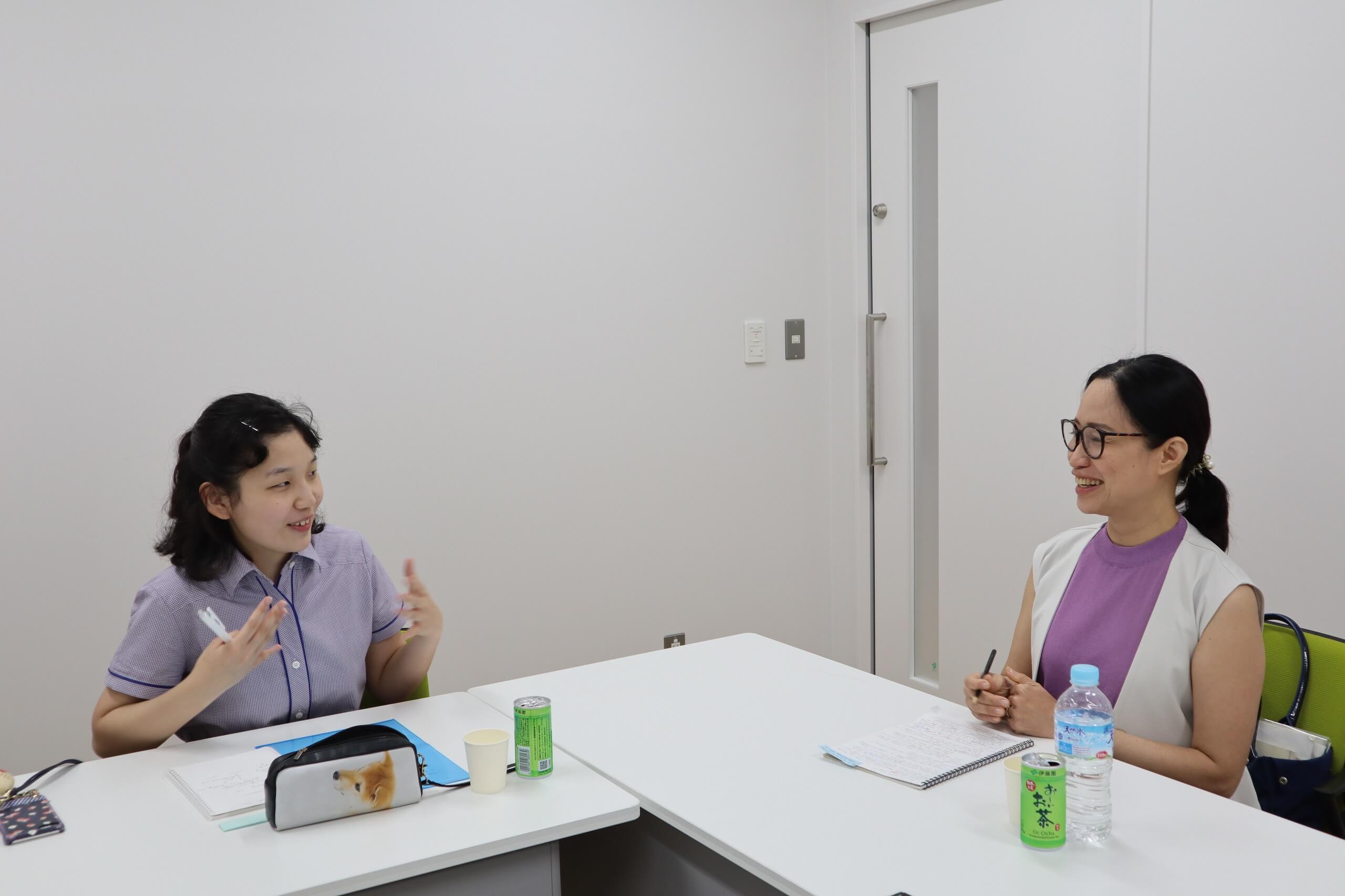
After working as a secretary in the Philippines, Marisa came to Japan 12 years ago to help her sister who had just given birth to her first baby. “Thinking back at that time”, she told me, “I knew only basic words and phrases from the dictionary I bought in the Philippines. Soon after I arrived in Japan, I found it difficult to make myself understood in Japanese. There were too many words I didn’t know! Every time I got lost during a conversation in daily life and on the television, I always asked my sister what they were saying.”
― As an English teacher in GOCA
Marisa used to teach English at a community hall in her neighborhood. Since her daughter’s husband was learning Japanese at GOCA, her daughter introduced GOCA to Marisa. The first time she visited GOCA with her daughter, the staff was supportive and she decided to register as an international exchange volunteer to teach English.
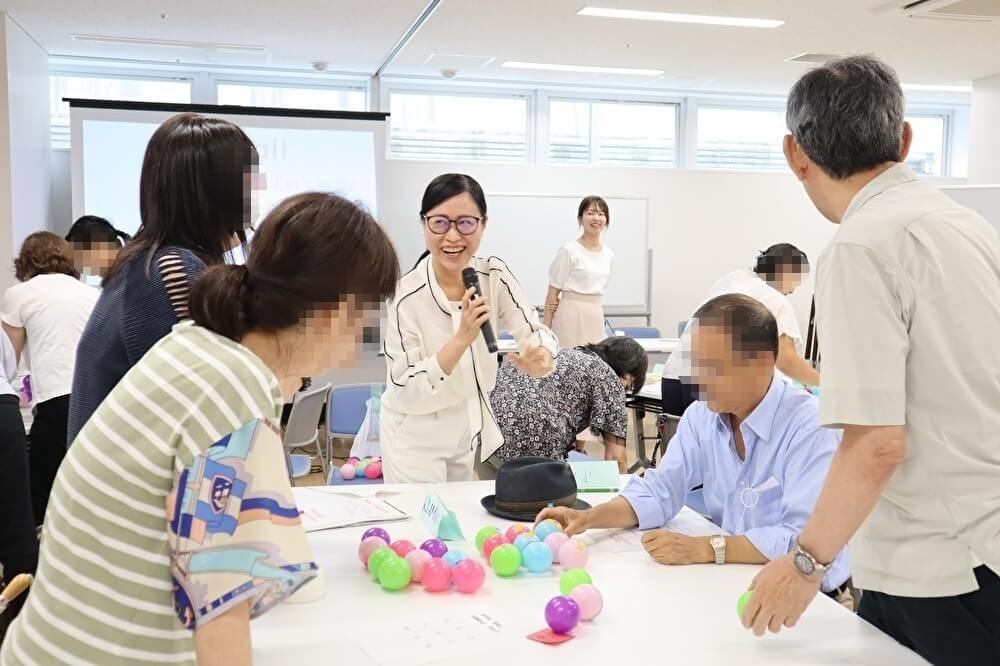 At first, Marisa started to teach English as a volunteer instructor in one-on-one English lessons. Her English conversation classes were cheerful and fun-filled, so the summer group lessons called “Marisa’s English Salon” was scheduled at GOCA by popular demand.
At first, Marisa started to teach English as a volunteer instructor in one-on-one English lessons. Her English conversation classes were cheerful and fun-filled, so the summer group lessons called “Marisa’s English Salon” was scheduled at GOCA by popular demand.
16 students, men and women of all ages were in her class, the class was full of a very welcoming atmosphere. Also, her practical lessons were filled with creative ideas and humor, for example, using balls to decide the discussion topic.
― What surprised you most in Japan?
The first impression of Japan, she said, was that she was touched by the marvelous and glorious night view of modern Tokyo seen from the airplane window. In addition, it made a great impact on her to know a number of women and children strolling at night in Japan. She found that Japan is open-minded and safe, while the Philippines is more conservative due to religious and cultural reasons.
― What is your favorite place?
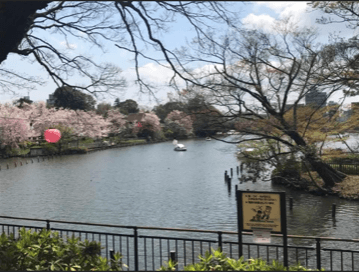 Her favorite place in Ota-city is the Senzokuike Park.
Her favorite place in Ota-city is the Senzokuike Park.
“When I walk through the Senzokuike Park which is full of nature, I feel relaxed because it is quiet and tranquil. Especially in spring, cherry blossoms are fascinating, and there is also a library near the park, so it is very convenient. I can feel nature there, so I walk around when I have time.”
― What did you suffer most?
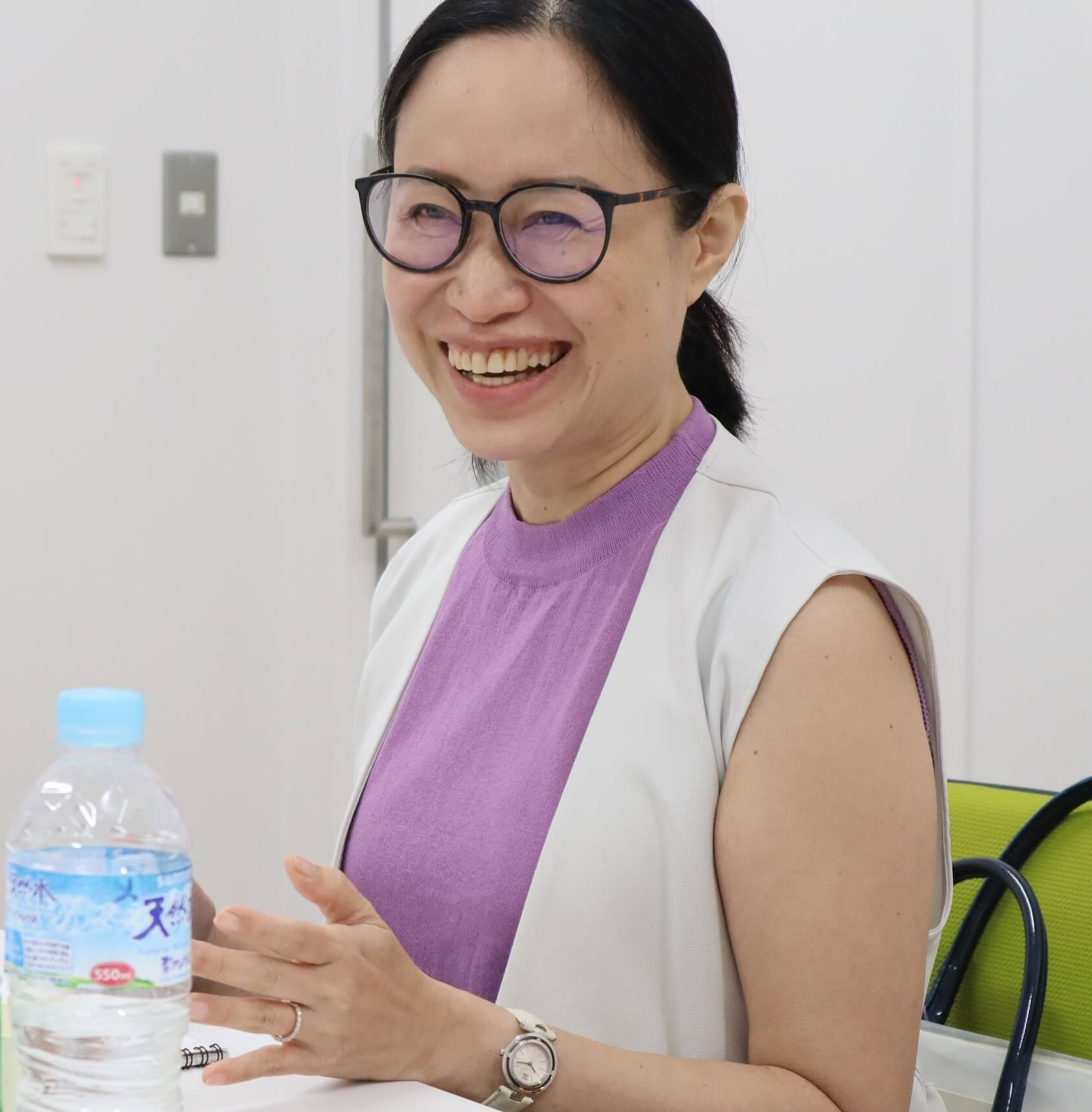
Now that she is accustomed to Japanese culture, however, she experienced various hardships in the past. With a smile, she said,
“I used to help my husband’s fish-based ramen shop in Shimbashi before. At that time, I couldn’t answer any of the customer’s questions and was puzzled. My husband and everyone around encouraged me by showing Japanese customs and culture, then I gradually adapted to Japanese lifestyles.” From her experience, she is eager to give inspiration to all the Filipino challengers in her hometown, by showing how she has overcome difficulties.
― What is your future dream?
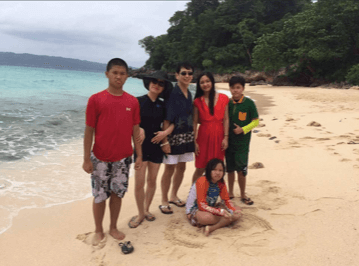
She is hoping for her family’s happiness as she says,
“As a mother and as a wife, I want to stay close to my family.”
She also determined that she would like to contribute to her second home country, Japan by using her abilities and skills. Also, she wants her children to intensify their understanding of Japan, and utilize their skills to realize their dream.
She sends a cheer to the future immigrants, “Knowing about the country is the knack to adapt to the society. By using this knack, I believe you can love this country.” Marisa responded sincerely to all the questions.
Salamat po!
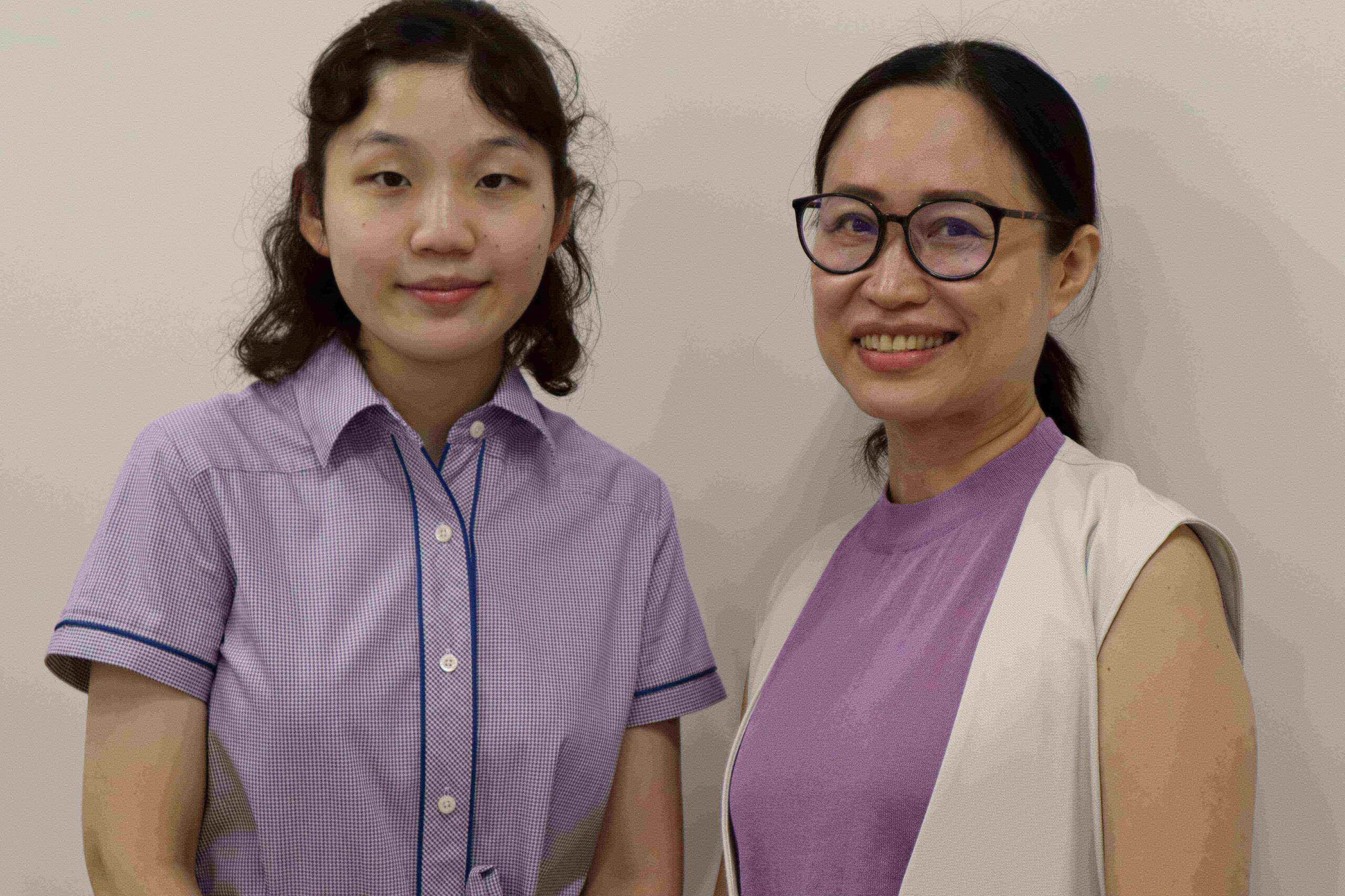
Yuuki Yamasawa



